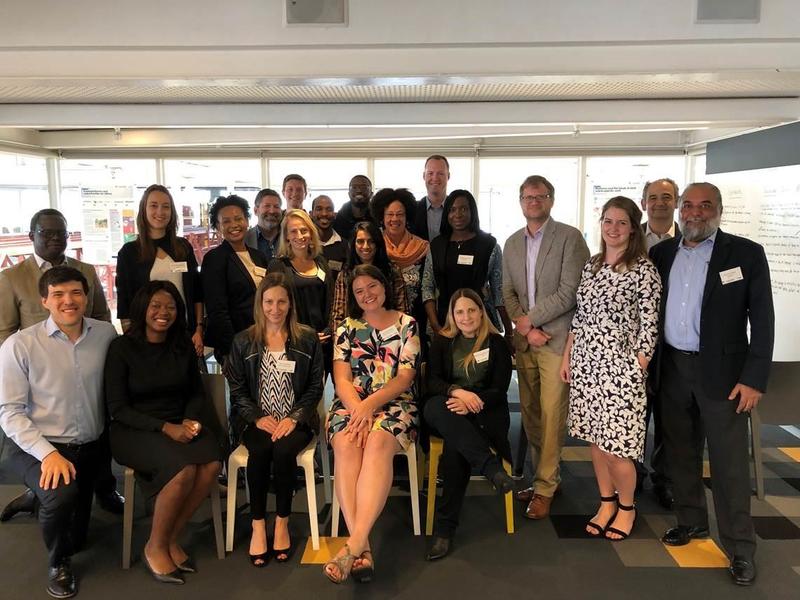Over 275 unique, active digital platforms were identified in Africa last year. After an exciting and impactful year generating insights on the role of platforms in financial inclusion and inclusive digital economies more broadly in Africa, insight2impact is partnering with BFA and Quartz Africa to mark the conclusion of the 4-year FIBR project and to initiate a set of conversations around the power of Africa’s platforms to support the Sustainable Development Goals (SDGs).
We will start these conversations at the FIBR Legacy Event on the Power of Platforms to Advance the SDGs with BFA and Quartz Africa, on 5 September in Cape Town. The event is being held on the side-lines of the World Economic Forum (WEF) on Africa. Register for the FIBR event here.
A glance at our work-to-date on platforms and financial inclusion:
- Gathering primary data from eight focus countries, we created a first-of-its-kind interactive database for the broader development community and investors to explore the characteristics of active digital platforms.
- We partnered with Research ICT Africa to bring together our supply- and demand-side data in a visual representation of Africa’s digital platforms and the people that earn an income through them.
- We published a seminal focus note that highlights that the majority of Africa’s digital platforms are homegrown and distribute value-added financial services to serve the financial needs of platform workers.
Highlights of our engagements with the broader development community to unlock inclusive digital economies, include:
- The Digital Platforms Workshop, hosted in partnership with FiDA, where we convened almost 30 experts (including our partners at BFA) to align our research agendas in the field.
- We presented our research at the UNCTAD E-Commerce Week in Nairobi, the China-Africa Fintech Conference in Hangzhou (in partnership with the HSRC and the Academy of Internet Finance at Zheijang University), the Digital Economy Africa Conference in Johannesburg (in partnership with the Oxford Internet Institute), and the GIZ workshop on Sustainability in the Age of Platforms in Brussels.
- We partnered with the Lagos Business School to convene 80 Nigerian digital platforms to discuss the opportunities that platforms create for digital financial services in Nigeria.
- We were the African representative at the WEF Digital Platforms & Ecosystems Workshop in Singapore..

insight2impact and FiDA's Expert Workshop on digital platforms: Changing landscape for financial inclusion in Africa (November 2018)
We concluded that Africa’s digital platforms have the potential to contribute to more inclusive digital economies.
Platforms have the potential to touch the lives of many Africans across many economic sectors. Across the eight African countries we studied, an estimated 4.8 million adults earned some form of income through platforms in 2017. There is a range of platforms that operate in a variety of sectors, including personal and private services, agriculture, health care, education, and tourism. This means that platforms have the potential to touch the lives of a broad segment of the African population and have a distinct opportunity to enhance the livelihoods of segments such as youth and women.
Income generated from platform-mediated work is essential for workers to meet basic needs. This income stream is vital to the livelihoods of platform participants: we found that around 50 percent of individuals indicated that the income generated from platform-mediated work was essential for meeting their basic needs.
Africa’s digital platforms can help achieve the SDGs. Beyond providing access to employment opportunities and markets, digital platforms have the opportunity to contribute to the SDGs in unique ways. For example, by partnering with financial services providers to distribute financial products for financial health (such as e-hailing platform Dropping partnering with People’s Pension Trust in Ghana), Africa’s digital platforms can contribute to SDG 1: No poverty and SDG 17: Partnerships for the goals. And by innovating to overcome existing infrastructure challenges, logistics platforms like Sendy in Kenya and Kobo360 in Nigeria contribute to SDG 9: Industry, innovation and infrastructure.
During the same week, our team is participating as an official constituent of the WEF on Africa Summit (4-6 September) and our programme co-host Cenfri will organize an event “A tap away: the way insurance works in Africa” in partnership with BFA’s Catalyst Fund focusing on innovative insurtech business models. Leading investors and insurance providers will join this event to discuss why Africa is the space to watch for tomorrow’s insurance products. Register for this ‘Lunch & Learn’ here.
We continue our research to generate insights on the incentives for platforms and financial service providers to partner. Our overarching objective is to facilitate partnerships that have the potential to amplify the value the platform economy can bring to the lives of workers and microenterprises in Africa. In our view, this will be an essential component of unlocking more inclusive digital economies in Africa.
Please reach out to Mari-Lise Petrik at mari-lise@i2ifacility.org for more information on any of these events and follow the conversation at #AfricanDigitalPlatforms
